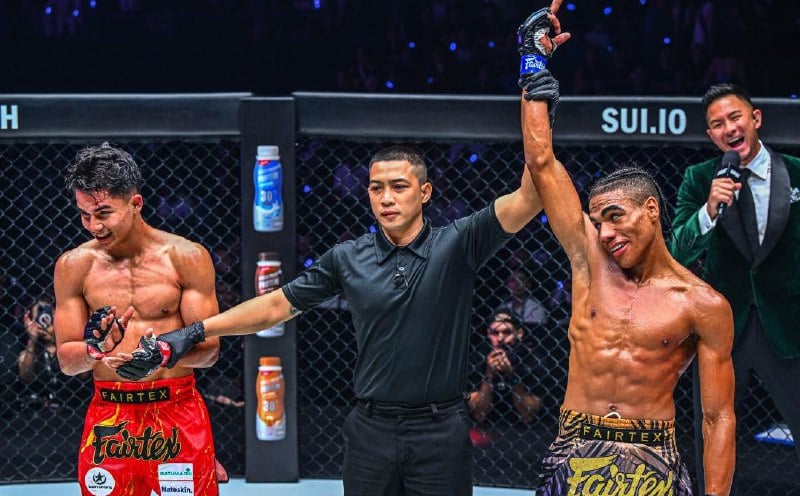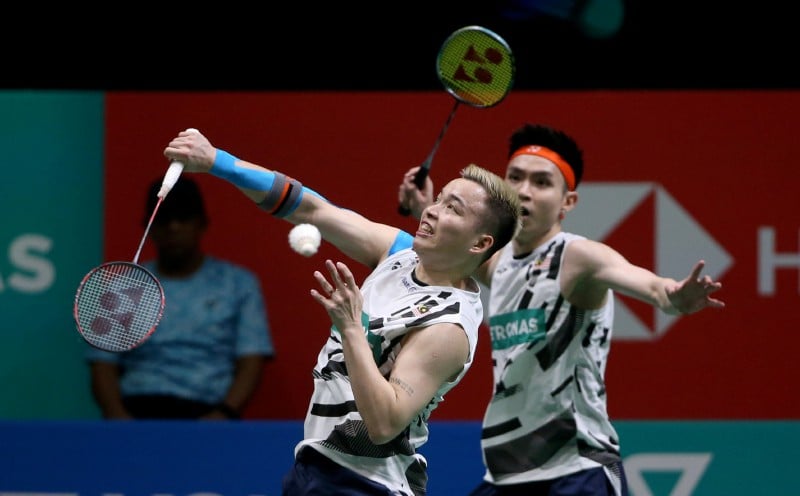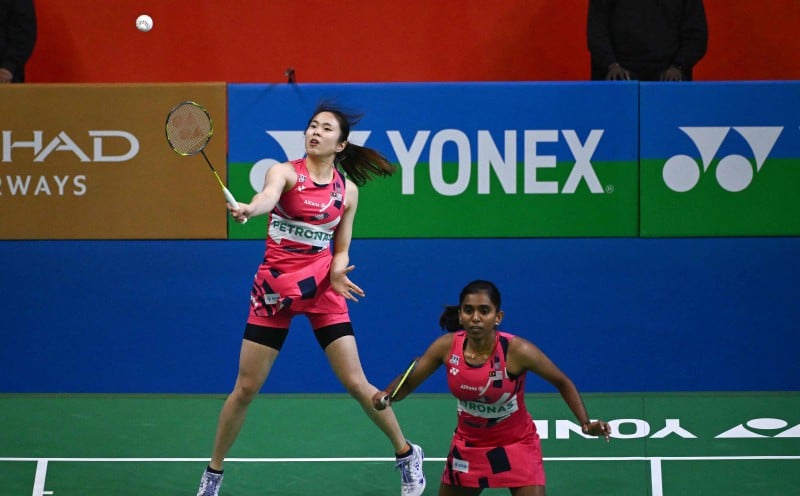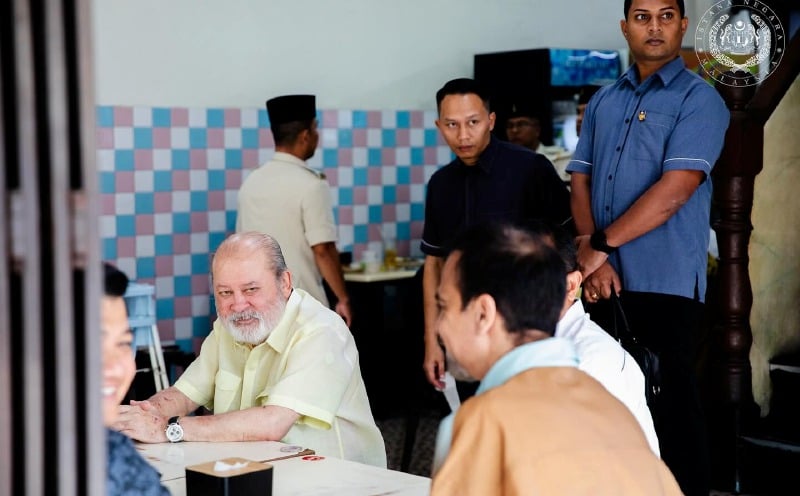HER link with television began at the age of 5 when she became a commercial talent. Bettina Chua Abdullah was also a model for print advertisements as she grew a little older.
For this interview, she confessed her reluctance to revisit the teenage model years, much less “the face”.
“Those were confusing years,” she recalls. “I was an adolescent, schooling, at a time when very few teens were in this business of being a TV commercial actress. And to me, it was a business.
“I was very professional when on a shoot. Even at 9 years old, I had an innate understanding that this was not fun and games for the other people around me.
“I understood that I was being paid to deliver. It set me on a learning curve much earlier than most, and I believe I grew up with a far more serious streak than perhaps was necessary — or desirable — for a 14- or 15-year-old schoolgirl trying to form friendships. It didn’t help to be different. “
After obtaining a Bachelor of Communications degree from Chapman University in Orange, California, Chua went to work for two broadcasters: TV3 and CNBC.
“In 1990, I was invited to join TV3’s Money Matters after the first host left,” she said.
“The station tested 81 potential anchors. I was number 80, and they offered me the job on the spot. It was an incredibly interesting time to be covering the Malaysian business industry.
“The nation was coming out of the mid-1980s recession. We became one of the Asian Tiger economies. Government institutions like Tenaga Nasional Bhd and Telekom were being corporatised. Companies were going public, with merger and acquisition activities everywhere. Foreign investment was flowing in.
“The most fascinating facet of all this was to witness the social changes.
“Banks were issuing credit cards and that changed people irrevocably. Access to credit fuelled domestic consumerism like petrol on fire. Life became lifestyles and, sometimes, pushed to the point of madness.
“Personal financial management was sorely absent in those heady days.”
In 1995, she became Malaysia’s first international TV presenter at CNBC Asia in Singapore, where she rose through the ranks to become chief anchor of CNBC’s signature morning show, Squawk Box.
“When I left, Squawk Box was the network’s top-rated morning show with 50 million eyeballs.”
During one period of time away from CNBC, Chua decided that she could produce content independently, for sale to CNBC.
“That’s how Asian Style came about. It was a look at art, architecture, food, design and travel in a rapidly-changing Asia.
“I travelled for two months with a crew through Southeast Asia, then spent double the time writing scripts, recording studio links and editing the programme.
“CNBC was the first to air Asian Style, and I then sold it to airlines and other broadcasters, including three networks in China.”
Her lifestyle programme, said Chua, was ahead of its time and aired long before there were others of its kind.
“And then came the dotcom meltdown and broadcasters could only stand by, helpless, as advertisers slashed and pulled their marketing dollars. So it came to an end after one season.”
The mother of two never stopped taking on new challenges, from property development, retail to studying Islamic art and architecture, she continued to travel the world, but calls Penang her home now.
Chua said she was once told that she would never have a single career, but would take many paths in her life.
“This,” she notes, “turned out to be a remarkably accurate prediction, and the rich variety of my life experiences has proven to be a great foundation for the creation of creative concepts, content development and experience engineering.”
Which brings us today to the life she has carved out for herself in George Town.
“After three years in Oxford from 2014 to 2017, I decided I would try to make a home in Penang, rather than be in Kuala Lumpur full-time.”
Chua had previously spent some time in Penang before, attending the George Town Festivals and literary festivals. Plus, she had a few friends there who were working in conservation and hospitality.
“There was an organic vibrancy to the changes in George Town that I found exciting, but equally, I liked that the United Nations Educational, Scientific and Cultural Organisation (Unesco) listing safeguarded the city from the type of development that could change its character.
“I have always liked the idea of living in different countries over the years.
“When you put yourself in a new world, you leave your comfort zone behind. You are catapulted into a different mental awareness.
“You create new connections, forge new communities, learn to live in a different culture. You learn to live with change. I find that even as I build on my old skills, I’m more creative, more resourceful, more productive.
“And so, I came to Penang in search of a new space, a different view and a fresh gaze.”
In her first few months in George Town, Chua was often asked what she was doing in Penang.
“The answer ‘living’ was baffling to most, because ‘doing’ is associated with business or employment, and I wasn’t in either,” she said.
This was followed by an opportunity to make a place for the arts that could be exciting and maybe just make a difference.
“A chance to create a brave new world,” was how she aptly described her new journey, and the opening of “Hikayat”, a space (along Lebuh Pantai) dedicated to arts and letters, as well as home to the second Gerakbudaya Bookshop found in the city’s heritage enclave.
“I am often asked what the business model or inspiration was for Hikayat and I don’t have an answer, except that like all things that grow from seeds that just won’t quit growing, it is an accretion of many thoughts, reflections and long discussions that Gareth Richards (her business partner) and I had about how we would grow something out of his Gerakbudaya Bookshop.”
She said some ideas for the space, which is a constant hive of activity, including screenings of world cinema, feature films and documentaries, were responses to existing voids.
“Hikayat began as an experiment to grow a small arts and letters ecology, to enable and encourage those creative, thinking, discerning minds.
“Hikayat is an Arab-Malay word for story, or narrative. A more nuanced meaning would be wisdom.
“The story can take the form of books, images, spoken words, or be performative — dance, theatre, music — it doesn’t matter.
“What matters is that at Hikayat, people learn something about their world, about another world, about themselves. Learning is very important to me. I am a life-long learner.
“And at Hikayat, you have an ecology that fosters learning and expression beginning with the Gerakbudaya Bookshop, to our reading room, upstairs to our podcast recording studio, our multi-use space Hikayat Blue and our Writers Residency Suite.
“All of this, in one space, one ecology.”











